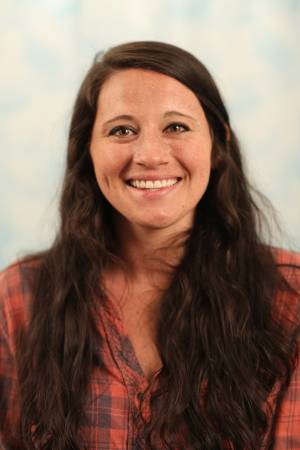PhD Speaking Qualifier
Inductive Biases for Learning Long-Horizon Manipulation Skills
Abstract: Enabling robots to execute temporally extended sequences of behaviors is a challenging problem for learned systems, due to the difficulty of learning both high-level task information and low-level control. In this talk, I will discuss three approaches that we have developed to address this problem. Each of these approaches centers on an inductive bias [...]
Analogy-Forming Transformers for Few-Shot 3D Parsing
Abstract: How do we build agents that can fast generalize to novel scenarios given only a single example? In this talk, I will present analogy-forming transformers, a semi-parametric model that segments 3D object scenes by retrieving related memories and predicting analogous part structures for the input. This enables a single neural network to continually learn [...]
Range-based Gaussian Process Maps for Mobile Exploration Robots
Abstract: Mobile robots exploring unknown, natural environments with limited communication must map their surroundings using onboard sensors. In this context, terrain mapping can rely on Gaussian process models to incorporate spatial correlations and provide uncertainty estimates when predicting ground height - however, these models fail to account for the oblique viewpoint of a sensor on [...]
Learning Exploration Strategies to Solve Real-World Marble Runs
Abstract: Tasks involving locally unstable or discontinuous dynamics (such as bifurcations and collisions) remain challenging in robotics, because small variations in the environment can have a significant impact on task outcomes. In this talk, we present a robot system that we developed to evaluate learning algorithms on real-world physical problem solving tasks which incorporate these [...]
Beyond NeRF Underwater: Learning Neural Reflectance Fields for True Color Correction of Marine Imagery
Abstract: Underwater imagery often exhibits distorted coloration as a result of light-water interactions, which complicates the study of benthic environments in marine biology and geography. In this research, we propose an algorithm to restore the true color (albedo) in underwater imagery by jointly learning the effects of the medium and neural scene representations. Our approach [...]
Force-Torque Sensors – Calibration & Estimation
Abstract: Wrist force-torque sensors were among the first proprioception sensors to be developed when robotics emerged as a field. They are now a mature technology already used in structured industrial applications like sanding and drilling. While they provide essential feedback in many manipulation algorithms, they do not garner as much excitement as exteroception sensors like [...]
Optimized Tradeoffs for Differentially Private Majority Ensembling
Abstract: Inspired by the common subtask of ensembling or calibrating private models, we study the problem of computing an m*epsilon-differentially private majority of K epsilon-differentially private algorithms for m < K. We introduce a general framework to compute the private majority via Randomized Response (RRM) with a data-dependent noise function gamma that subsumes any non-trivial [...]
Incorporating Robustness into Learning-Based Aircraft Detection and Tracking Systems
Abstract: In the field of aviation, the Detect and Avoid (DAA) problem deals with incorporating collision avoidance capabilities into current autopilot navigation systems. In order to standardize DAA capabilities, ASTM has published performance requirements to define safe DAA operations of unmanned aircraft systems (UAS). However, the performance of DAA models are entirely dependent on the [...]
Differentiable Fluid-Structure Interaction for Robotics
Abstract: We present Aquarium, a differentiable fluid-structure interaction solver for robotics that offers stable simulation, accurately coupled fluid-robot physics in two dimensions, and full differentiability with respect to fluid and robot states and parameters. Aquarium achieves stable simulation with accurate flow physics by directly integrating over the incompressible Navier-Stokes equations using a fully implicit Crank-Nicolson [...]
An Effective Learning Framework for Active Perception and a Case Study on Liquid Property Estimation
Abstract: Active perception refers to a perception process where robot actions are taken to improve perception. To do this, the robot needs an observation model that knows what it will observe based on the actions it takes. However, existing approaches struggle to learn a good observation model since it needs to account for all possible [...]
Vision-based Proprioceptive and Tactile Sensing for Soft Robots
Abstract: Soft robotic manipulators present many unique advantages in difficult manipulation tasks. The inherent compliance of soft robots' constituent deformable material makes them safe and reliable in delicate tasks such as harvesting fruit and assisting in household work. To address challenges in proprioceptive and tactile sensing for soft robots, we present a family of vision-based [...]







